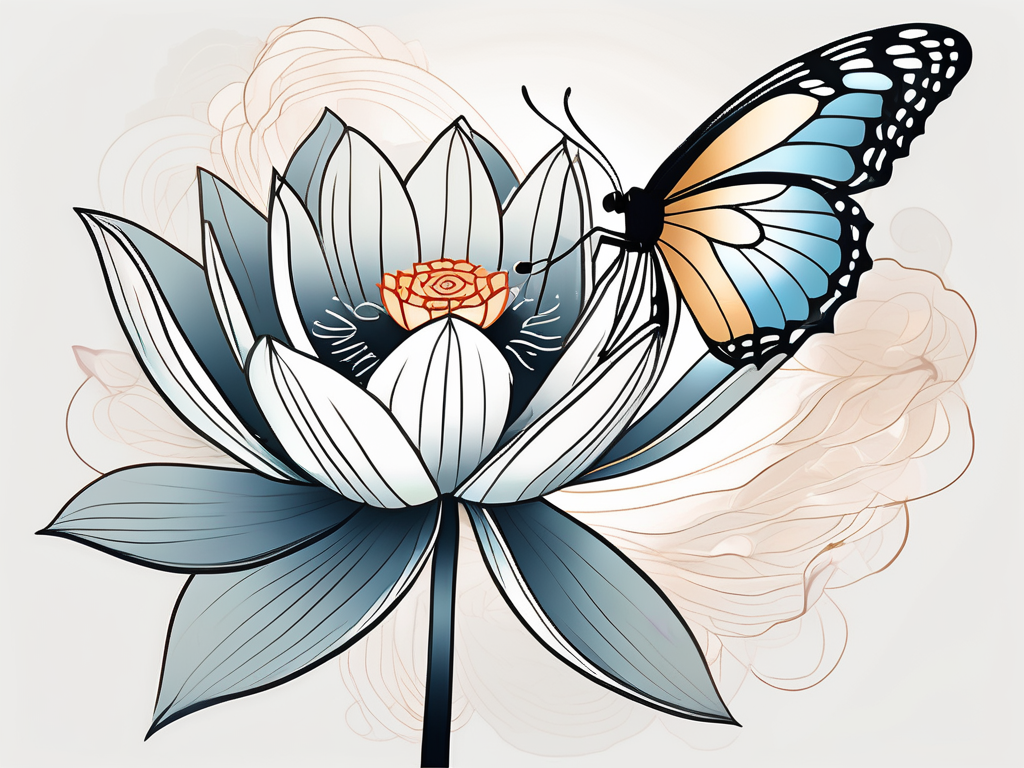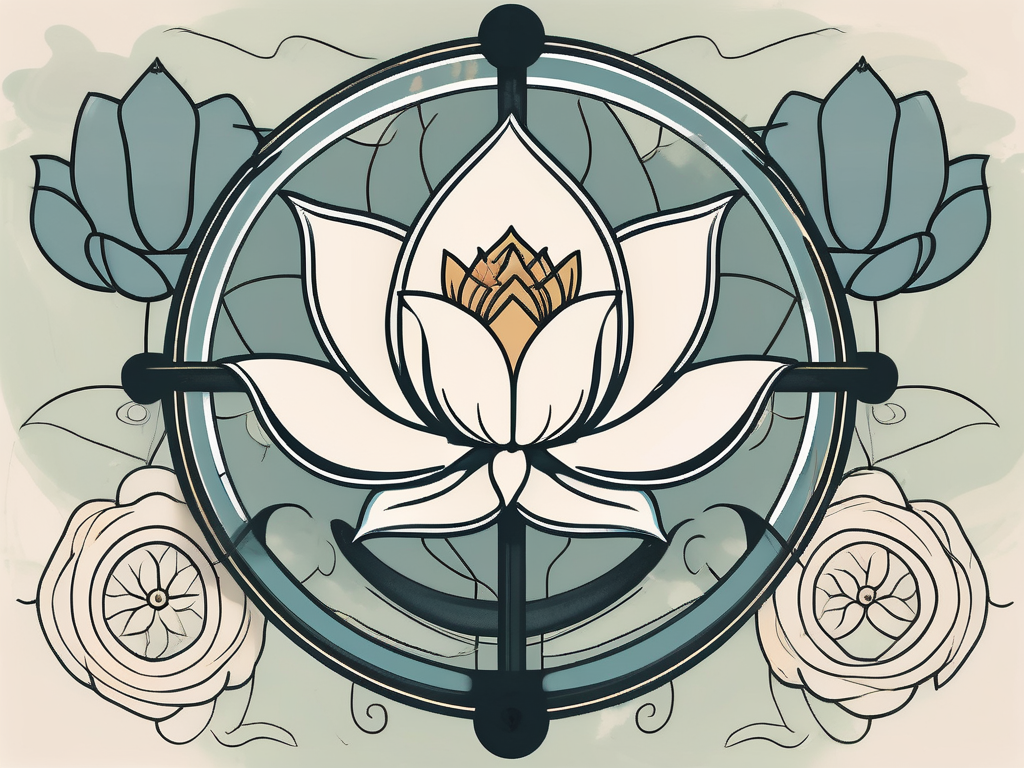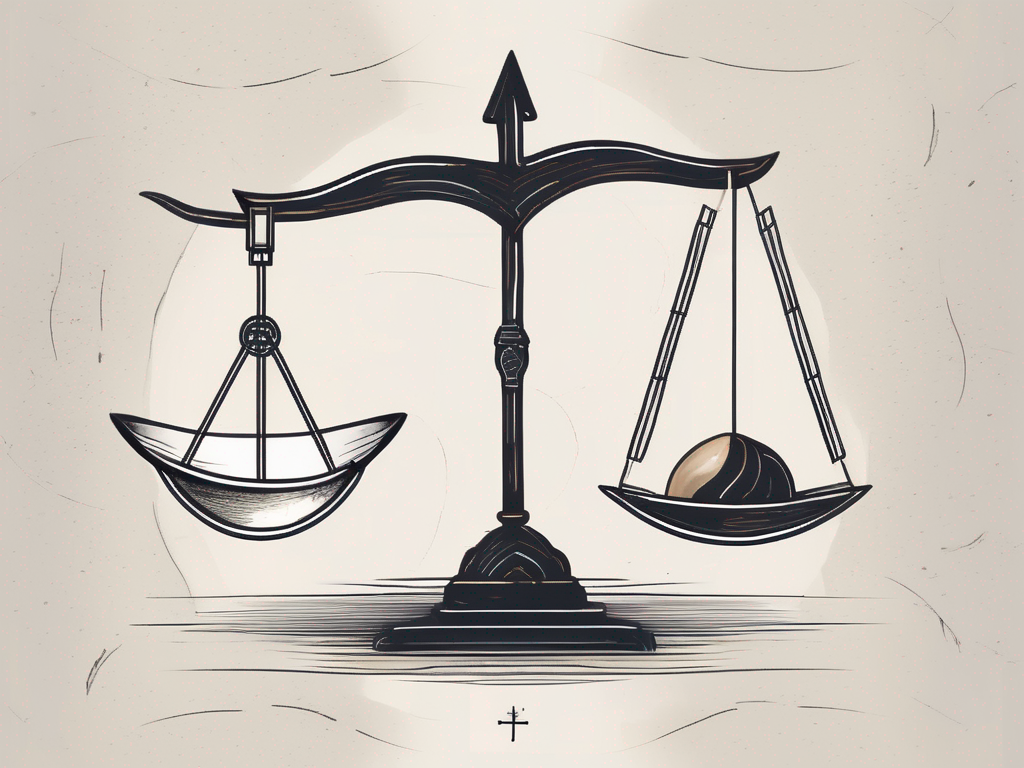Reincarnation is a fascinating concept, and in Buddhism, it holds a prominent place. By exploring the basics, the role of karma, the Buddhist perspective, the process of reincarnation, and its connection to enlightenment, we can gain a deeper understanding of this concept.
Understanding the Basics of Reincarnation
Reincarnation can be defined as the cycle of birth, death, and rebirth. It is a fundamental belief in Buddhism and is considered as a natural process. According to Buddhist teachings, life does not end with death; instead, it continues through subsequent rebirths.
Reincarnation is a concept that has fascinated and intrigued people across cultures and throughout history. It offers a unique perspective on the nature of existence and the journey of the soul. By exploring the depths of reincarnation, we can gain a deeper understanding of the mysteries of life and death.
Definition and Significance of Reincarnation
Reincarnation, also known as rebirth, is the concept of a soul or consciousness being reborn into a new body after death. It is significant because it offers explanations for the inequalities and suffering observed in the world. Through the process of reincarnation, one’s actions in previous lives continue to impact their current and future lives.
Imagine a world where every action, every thought, and every intention has a ripple effect that extends beyond a single lifetime. Reincarnation provides a framework for understanding the consequences of our choices and the interconnectedness of all beings. It reminds us that we are not isolated individuals, but part of a vast cosmic web.
The Cycle of Birth, Death, and Rebirth
In Buddhism, the cycle of birth, death, and rebirth is known as samsara. It is believed that all living beings are trapped in this cycle until they attain liberation, also known as nirvana. This cycle is characterized by constant change, and each rebirth offers an opportunity for spiritual growth and progress towards enlightenment.
Within the cycle of samsara, each life presents unique challenges and opportunities for growth. It is through the experiences and lessons of each lifetime that individuals can evolve and transcend the limitations of the physical realm. Reincarnation, therefore, becomes a journey of self-discovery and self-realization.
As individuals progress through the cycle of birth, death, and rebirth, they accumulate wisdom and spiritual insights. Each life serves as a stepping stone towards ultimate liberation from the cycle of samsara. It is a process that requires patience, perseverance, and a deep commitment to self-transformation.
Moreover, the concept of reincarnation provides solace and hope to those who have experienced loss and suffering. It suggests that death is not the end but a transition to a new beginning. It offers the possibility of redemption, growth, and the opportunity to correct past mistakes.
Ultimately, understanding the basics of reincarnation opens up a world of possibilities and invites us to explore the depths of our own existence. It challenges us to reflect on the choices we make and the impact they have not only on our present lives but also on our future ones. Reincarnation is a profound and thought-provoking concept that continues to captivate the human imagination.
The Role of Karma in Reincarnation
Karma plays a pivotal role in the process of reincarnation. It is the law of cause and effect, where actions have consequences that continue across lifetimes. The choices and actions we make in this life shape our future lives. In essence, karma is the force that determines the circumstances, experiences, and even the form a being takes in their next life.
The Law of Karma
The law of karma states that every action, whether positive or negative, creates an imprint on the consciousness. These imprints, also known as karmic seeds, will eventually ripen and influence future experiences. It is through the law of karma that beings continue their journey of reincarnation.
Imagine a person who consistently performs acts of kindness and compassion throughout their life. Their positive actions create a reservoir of good karma, which will manifest in their future lives. This person may be reborn into a loving and supportive family, with ample opportunities for growth and happiness. Their past actions have paved the way for a favorable rebirth.
On the other hand, consider someone who engages in harmful actions, causing suffering to others. Their negative actions accumulate negative karma, which will shape their future experiences. This person may be reborn into challenging circumstances, facing hardships and adversity. Their past actions have created the conditions for a difficult rebirth.
Karma and the Rebirth Process
When an individual dies, their karma determines their next rebirth. The quality of their actions and intentions in previous lives shapes the conditions and circumstances of their next life. Positive actions lead to a higher birth, whereas negative actions may result in a lower birth, such as being born into a challenging situation.
It is important to note that karma is not a form of punishment or reward, but rather a natural consequence of our actions. It is a mechanism that allows beings to learn and grow through the experiences they create. Every action, thought, and intention contributes to the karmic balance, shaping the trajectory of future lives.
Reincarnation, fueled by karma, offers endless opportunities for spiritual evolution. It provides a framework for individuals to learn from their past actions, make amends, and strive for personal growth. The cycle of birth, death, and rebirth allows for the refinement of the soul, as it navigates through different life experiences.
Moreover, karma is not limited to individual actions alone. It also encompasses the collective karma of societies and civilizations. The choices and actions of a community or nation can influence the circumstances and challenges faced by its members in future generations. This collective karma highlights the interconnectedness of all beings and the importance of cultivating positive actions for the benefit of all.
In conclusion, karma is an integral part of the process of reincarnation. It is the law of cause and effect that shapes the circumstances and experiences of future lives. Through the accumulation of positive or negative karma, individuals pave the way for their next rebirth. Understanding the role of karma in reincarnation can inspire individuals to cultivate positive actions and intentions, leading to a more favorable and fulfilling journey of spiritual evolution.
The Buddhist Perspective on Reincarnation
Within Buddhism, there are different perspectives on reincarnation, depending on the Buddhist tradition. The two main traditions, Theravada and Mahayana, have slight variations in their interpretation of this concept.
Reincarnation, or the belief in the cycle of birth, death, and rebirth, is a fundamental aspect of Buddhist philosophy. It is a concept that has intrigued and fascinated people for centuries, offering a unique perspective on the nature of existence and the potential for spiritual growth.
Reincarnation in Theravada Buddhism
In Theravada Buddhism, reincarnation is seen as a continuation of individual consciousness. It is believed that individual beings have a unique essence, known as the soul or self, that carries on from one life to another. This essence is believed to be shaped by the actions, thoughts, and intentions of the individual, creating a karmic imprint that influences future rebirths.
Theravada Buddhists strive to break free from the cycle of reincarnation by following the Noble Eightfold Path, which includes practices such as meditation, ethical conduct, and the cultivation of wisdom. By purifying the mind and eliminating attachment and ignorance, one can attain enlightenment, also known as Nirvana, and escape the cycle of birth and death.
Within Theravada Buddhism, there is also a belief in the existence of different realms or planes of existence. These realms, known as the “samsaric realms,” include the human realm, animal realm, heavenly realms, and various realms of suffering. Reincarnation is seen as a means for beings to move between these realms based on their karmic actions and the state of their consciousness.
Reincarnation in Mahayana Buddhism
In Mahayana Buddhism, which includes traditions like Zen and Tibetan Buddhism, the concept of reincarnation is viewed more broadly. Instead of focusing solely on the individual, it emphasizes the interconnectedness of all beings. Reincarnation is seen as the continuation of consciousness, energy, and the karmic imprints that connect us all.
Within Mahayana Buddhism, there is a belief in the existence of multiple Buddhas and bodhisattvas, enlightened beings who have chosen to postpone their own enlightenment in order to help others attain liberation. It is believed that these enlightened beings can manifest in different forms and continue to guide and support beings throughout the cycle of reincarnation.
One of the unique aspects of Mahayana Buddhism is the concept of the “Bodhisattva vow.” This vow is taken by those who aspire to attain enlightenment not only for their own benefit but also for the benefit of all sentient beings. By dedicating themselves to the welfare and liberation of others, Bodhisattvas commit to countless rebirths until all beings are free from suffering.
Both Theravada and Mahayana Buddhism offer profound insights into the nature of reincarnation and the potential for spiritual growth and liberation. Whether one resonates with the individualistic perspective of Theravada or the interconnected perspective of Mahayana, the concept of reincarnation serves as a reminder of the impermanence of life and the opportunity for personal and collective transformation.
The Process of Reincarnation in Buddhism
The process of reincarnation in Buddhism is a complex and fascinating journey that unfolds between lives. It involves various stages and experiences that shape the path of an individual’s spiritual journey.
One of the most intriguing aspects of reincarnation in Buddhism is the concept of the intermediate state, known as the bardo in Tibetan Buddhism. This transitional period occurs between death and rebirth and is believed to be a crucial phase in the soul’s journey. During this time, the consciousness experiences a series of visions and states of existence, which are said to be influenced by one’s karma and the state of their mind at the time of death.
Imagine a vast and ethereal realm where the soul traverses, encountering different realms and dimensions. In this intermediate state, the soul may witness vivid visions, symbolic representations, and even encounter spiritual beings. These experiences are believed to be a reflection of one’s past actions and thoughts, offering an opportunity for self-reflection and growth.
Furthermore, the twelve nidanas, also known as the links of dependent origination, play a crucial role in the process of reincarnation. These links explain the intricate relationship between our actions, attachments, and the perpetuation of suffering. According to Buddhist teachings, it is through understanding and breaking these links that one can liberate themselves from the cycle of samsara.
Each of the twelve nidanas represents a specific cause-and-effect relationship that leads to rebirth. It begins with ignorance, the root cause of suffering, and progresses through stages such as mental formations, consciousness, and name-and-form. This intricate web of interdependent links highlights the profound interconnectedness of all beings and the importance of cultivating wisdom and compassion.
As one contemplates the process of reincarnation in Buddhism, it becomes evident that it is not a linear or straightforward journey. Rather, it is a multi-dimensional exploration of consciousness, karma, and the nature of existence. The teachings on reincarnation offer a profound perspective on the human experience, encouraging individuals to cultivate mindfulness, compassion, and wisdom in order to break free from the cycle of suffering and attain enlightenment.
Reincarnation and Enlightenment
Reincarnation is intrinsically tied to the pursuit of enlightenment in Buddhism. It provides the opportunity for individuals to continue their spiritual journey and eventually achieve liberation.
The Path to Nirvana
Nirvana, the ultimate goal in Buddhism, is the state of liberation from the cycle of birth, death, and rebirth. Through the cultivation of wisdom, compassion, and the practice of the Eightfold Path, individuals can attain enlightenment and break free from the cycle of reincarnation.
The Role of Reincarnation in Achieving Enlightenment
Reincarnation serves as a valuable tool for individuals to learn and grow. It allows them to experience the consequences of their actions, develop virtues, and overcome attachments and desires. Each birth provides an opportunity to progress towards enlightenment by deepening their understanding of the nature of reality and the interplay of karma.
In conclusion, the concept of reincarnation is a fundamental aspect of Buddhism. It offers an explanation for the cycles of birth, death, and rebirth, and the role of karma in shaping our experiences across lifetimes. Understanding the Buddhist perspective on reincarnation and its connection to enlightenment can help us contemplate our own actions and make choices that lead to spiritual growth and liberation.












